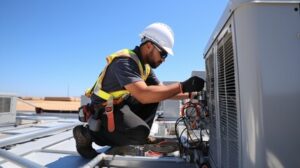Whether you’re a beginner or a seasoned hunter, it is always a good idea to be prepared for any scenario while hunting. This includes having the right gear in your pack to help you get around and stay safe.

Many hunting gear items can be costly, especially the best ones that are designed for quality. However, some of them are essential and worth the price tag. Read on Bugle For Elk to learn more.
A knife is an important tool for anyone going into the wild, but it’s especially crucial for hunters. The right hunting knife can help you field dress your game, cut rope or twigs and build shelters, among other campsite tasks.
There are a wide variety of knife styles, so choose one that fits your needs. For example, if you’re a deer hunter, look for a blade with a flat grind and a curved point. This makes skinning the animal much easier and prevents you from tearing into the meat.
Another option is a drop point blade, which has a rounded curve at the end of the point, making it useful for gutting and quartering. A drop point is also ideal for cutting tendons and bones because of its strength.
A skinning knife is a specialized type of hunting knife that is short and thin with an extremely sharp blade. It can make the process of dressing and skinning your game much faster and less messy.
It’s important to take proper care of your knife so that it lasts. Clean it regularly with a product designed specifically for the material of your handle. A quick wipe down after every use will do the trick, but it’s best to give your knife a thorough cleaning after each hunt. A good idea is to purchase a multifunctional cleaner that also functions as a lubricant and protectant.
Flashlight
Whether you’re going on your first hunt or your fiftieth, having the right gear can make all the difference. A thorough checklist can help you ensure that you’re packing all the necessary items for your trip, from camo clothing to a hunting backpack to a high-quality rifle or bow. In addition to the basic hunting essentials, you should also consider the type of hunt and terrain conditions when choosing your gear.
A flashlight is an important piece of equipment for hunters because it can help you navigate the darkened woods and track animals. It can also help you stay safe during nighttime hunting by illuminating your surroundings and alerting other hunters of your presence. This is especially important when hunting on public land or in areas with many other hunters.
When choosing a flashlight for hunting, consider its brightness and how long it can run on a single charge. It should also be waterproof and durable enough to withstand harsh weather conditions. Additionally, consider whether you want a flashlight with multiple modes or a strobe feature. Some hunters prefer a flashlight with a more narrow beam so that it can illuminate their immediate environment without illuminating nearby trees and other objects that could give away their position.
If you’re a predator hunter, look for a flashlight that emits infrared light to attract your prey. If you’re looking for a more versatile option, consider getting a flashlight that offers both infrared and visible LEDs, like the Nitecore MH27UV.
Compass
A compass should be a part of any hunter’s gear. While GPS devices are great to have, having a traditional backup and knowing how to use it is essential. Many people think that learning how to read a compass is difficult, but it’s actually pretty easy once you understand the basic principles.
A good compass will help you navigate in the wilderness, and the Silva Ranger 2.0 Compass is one of the best on the market. It has a mirror that allows you to sight objects in the distance, and it can be used with a map. It is also durable, and it has glow-in-the-dark markings to help you navigate at night.
This compass is designed for the military, so anyone that is familiar with it will have no trouble using it. It has a base plate that is balanced for the northern hemisphere, and it can be used with maps. It also has a declination adjustment, which is important for people that travel near the equator.
A compass is an essential tool for hunters, and it can be used to find your way back to camp. It’s also useful for finding your tree stand in the dark, or it can be used to navigate in the snow. A compass is a must-have item for anyone who loves to spend time outdoors. It’s also a thoughtful gift for a loved one.
Map
One of the most important tools any hunter can use is a map. Whether you’re on new property or familiar territory, the right mapping tool can give you a whole new understanding of your hunting ground. The best mapping tools, whether on an app or a traditional map, provide multiple layers of information that are crucial for the modern hunter.
Aerial satellite maps provide a clear view of the terrain that can help identify major features like roads and trail networks. Topo maps, on the other hand, offer a more detailed rendering of the landscape and can highlight things like tree cover and rocky outcroppings that would be difficult to discern with satellite imagery alone.
Using a topographical map can also reveal likely pinch points that hold game animals and make them more accessible for hunters. These can include valleys that funnel wind into roost areas, road crossings that avoid heavily used hiking trails and food sources that are hidden by brush or other cover.
The onX Hunt app is a great choice for map users as it offers a combination of both topographical and aerial maps along with other key hunting-specific features. For example, the app includes a color-coded layer of private and public land boundaries, which is an essential feature for hunters who want to avoid trespassing or to know what properties they can hunt on. It can also display a nationwide county-level rut map to help you plan your hunting strategy.
First Aid Kit
A first aid kit is a hunter’s lifeline in the backcountry. A well-rounded kit covering cuts, wounds and sprains while addressing dehydration and infection creates a frontline defender that can tackle minor injuries before they escalate into serious situations. Adding in utility items like Duct tape and a multitool boosts your kit’s versatility so you can tackle more serious problems.
Although hunters take proper safety precautions to reduce the risks, accidents can happen. A sharp knife that slips, a twisted ankle from hiking or the worst, gunshot wounds, can all lead to serious injury and even death. A good first aid kit can minimise damage, so it’s crucial to prepare one and carry it on all hunting trips.
The basic supplies every first aid kit needs include bandages, swabs and wipes to clean wounds, antibiotic ointments for scrapes and infections and pain relievers for aches and injuries. A tourniquet can be used to control heavy bleeding until you can get medical assistance and is a top-tier addition to any hunting first aid kit. Other supplies that should be included in a hunting first aid kit are gauze pads and dressings, a splint and a medical guide. It’s also a good idea to include a personal locator beacon, especially on extended backcountry hunts that require travel through remote areas without cell service.
Socks
Socks may seem like a small detail, but high-quality socks can make all the difference during a hunt. Look for wool and merino blends with moisture-wicking properties to keep feet comfortable and dry. Look for socks that prioritize a snug fit to prevent blisters and bunching, especially during physically demanding activity. The right sock can also help regulate temperature by keeping the feet cool in warm weather and providing warmth when needed.
Moisture-wicking technology keeps feet dry by quickly drawing sweat away from the skin, which is crucial during a long or difficult hunt. Look for socks with a seamless toe design, ribbed heel and toe support, and a comfort band opening that won’t bind or bunch. The right sock can also help avoid blisters by limiting friction with the shoe or boot, which is an important consideration when embarking on a multi-day trek.
The amount of physical activity and climate will determine the optimum weight sock for a hunting trip. Look for a light sock in warmer weather and a heavier sock for colder conditions. Merino and alpaca wool is an excellent option for cold temperatures as it insulates even when wet. A sock made with these materials will also resist odors, making them ideal for hunters who spend extended periods of time on their feet in rugged terrain or crouching in blinds. Finally, bring some leukotape or moleskin to address any hotspots that might develop.
